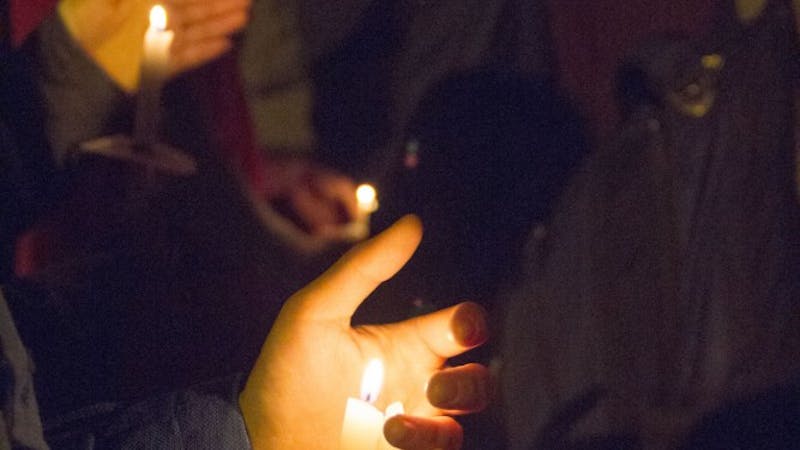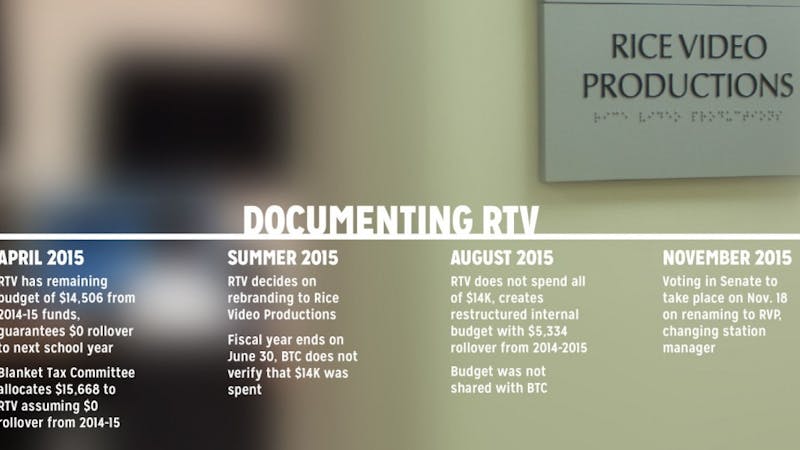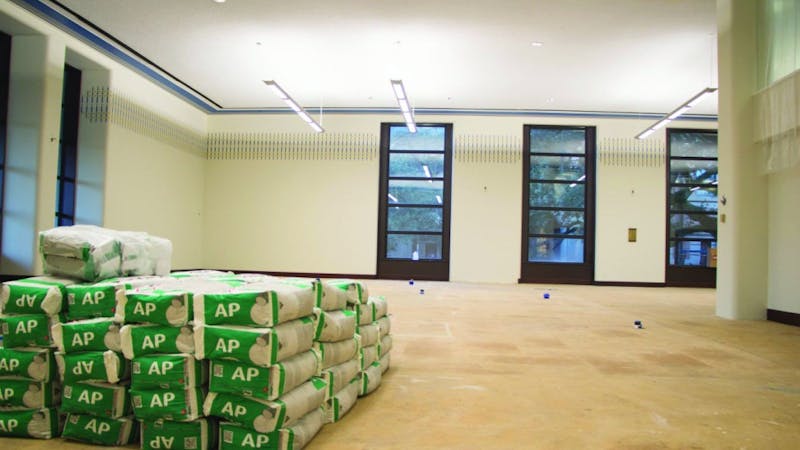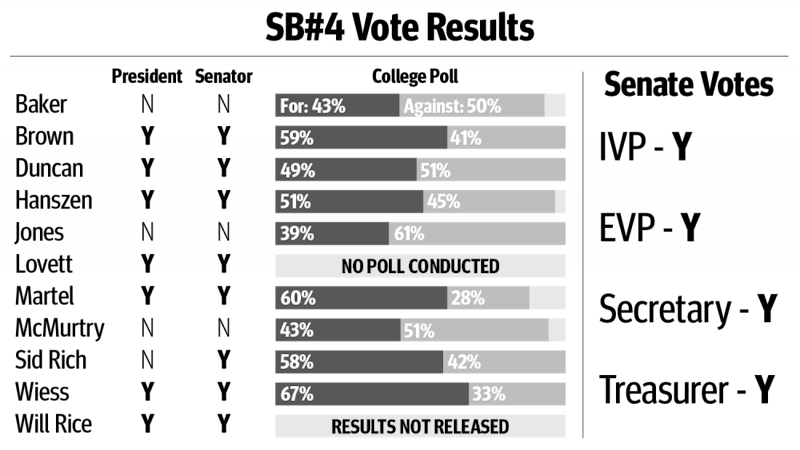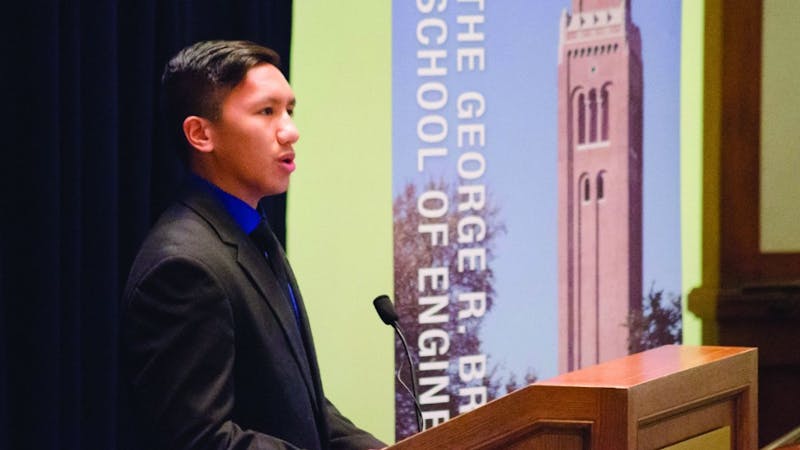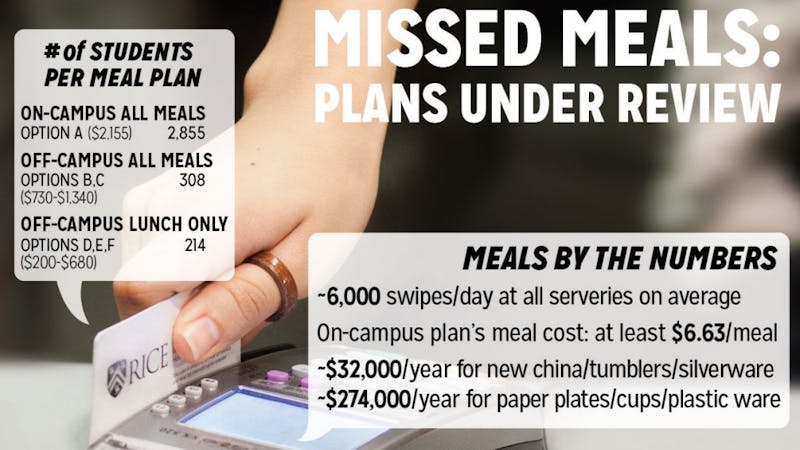Proposal impacts international student employment
In response to a proposed rule regarding the post-graduation employment program for international students, the Rice Chinese Students and Scholars Association started an online campaign encouraging students to participate in public comment submission to protect their career prospects in the United States. The proposed rule from the Department of Homeland Security would increase the temporary employment extension period for students studying science, technology, engineering and mathematics from the current 17 months to 24 months.A court decision regarding the validity of the new proposal is expected by February 2016. If the proposal fails, students currently enrolled in the extension program may have to leave the United States as the 17-month program has been vacated. The public comment session closed on Nov. 18. BackgroundOptional Practical Training is temporary employment directly related to F-1 students’ major area of study, F-1 being a nonimmigrant visa that applies to most foreign students. This counts as part of their education and allows them to remain in the U.S. before obtaining a work visa. Normally, students could apply for up to 12 months of practical training before or after completion of studies. Since 2008, students whose OPT was granted on the basis of a STEM degree are eligible for a onetime 17-month extension. According to the Office of International Students and Scholars Executive Director Adria Baker, this extension currently provides students more chances to enter the annual draw for an H-1B work visa, the total number of which is fixed and insufficient for an increasingly large number of applicants.According to a document prepared by National Association of Foreign Student Advisers, in March 2014, the Washington Alliance of Technology Workers filed a lawsuit against DHS, arguing that DHS violated the Administrative Procedure Act when it started the STEM extension rule in 2008. The district court ruled in August 2015 that the extension rule must be vacated or re-established within six months due to procedural deficiency. The new DHS proposal, titled “Improving and Expanding Training Opportunities for F-1 Nonimmigrant Students With STEM Degrees and Cap-Gap Relief for All Eligible F-1 Students,” is a response to the court order. The campaignIn an email sent out Nov. 11, Rice Chinese Students and Scholars Association urged its recipients to chime into the public discussion about the DHS’s proposed rule.“OPT Extension is in grave danger,” the email stated. “Every international student who wants to work in the U.S. is a direct stakeholder. Regardless of when you are graduating, please take a few minutes to give a supportive comment.” Computer science master’s student and recent alumni Maggie Tang (Lovett ’15) approached RCSSA early November in hopes that the organization, as a unified body, could call Chinese students to action. One of the main proponents of the campaign, Tang said the email was a response to a flood of negative, extremist and sometimes uninformed comments. “We couldn’t control what they say, regardless of how much it hurts,” Tang said. “But if they start a large-scale offense like this, at least we need to do what we should do, to fight for ourselves … America is a democratic country, so we are telling them we think this is a win-win situation.”Tang said the email is meant to be informative, as many international students seem unaware of the situation. Some even thought this proposal already passed.“International students know very little about American legal procedures,” Tang said. “So I think this is more about spreading the word. We are just telling them there is this channel. What they end up writing is not up to us.”Tang pointed out that people are talking about interrelated but distinct issues, such as F-1 visa, OPT, OPT STEM Extension, H-1B work visa and immigration as if they are the same thing. “These are completely different problems,” Tang said. “But now they are all mixed up.”RCSSA Co-President Xiang Zhang said he has been in touch with Chinese international student associations in other U.S. universities, but he doesn’t see as much enthusiasm from other groups at Rice.“I noticed that outside of the Chinese community, other international students didn’t seem to react too strongly,” Zhang, a PhD student in applied physics, said. “I sent emails to the presidents of international student clubs such as India, Iran, Korea and Taiwan, and only got [one reply].”Indian Students at Rice, the Rice Iranian Society and the Korean International Student Association could not be reached for comment.Zhang said despite the negative comments on the internet, he has found Rice is a friendly environment for international students with both collaboration and competition with U.S. students.“In my observation, international students at Rice get along quite well with local students since they collaborate closely,” Zhang said. “Of course competition exists, but not to the extent that they become exclusive.” Rice perspectivesBaker said people who leave hurtful comments don’t see the value that international students bring and are probably uninformed.“It’s easy to say, ‘Someone’s going to take my job,’” Baker said. “But it’s probably not a job they would be taking anyway.”Rice advocates for the proposed 24-month extension, according to Baker.“As a group, we are very supportive of giving international students more opportunities because they are our alums, they are our graduates, they are the ones that are going to get better jobs because the companies are going to see that there’s more longitude to it,” Baker said. Russell Kielawa, an office assistant at the OISS, said the extended OPT program is a crucial part of international students’ education.“I can see how some people can see it as making it harder for some people to get jobs,” Kielawa, a Martel College freshman, said. “[But] I think it’s kind of necessary to have so that people can really become well-trained and achieve as far as they want in their career.” Kielawa said companies will also benefit from international students staying longer.“It’s really good for businesses and everything too, because they are getting something who really cares about what they are studying [and] want to get the most out of their experience and be the best at whatever field they are in,” Kielawa said. Worst case scenarioGiven that the court has annulled the 17-month program, if the 24-month proposal does not go through, students currently on the STEM extension would have to apply for a change of status to another nonimmigrant visa, extend their F-1 visa, or depart the U.S., according to Baker.Baker said a failure to pass the proposed rule will have other ramifications for both students and companies.“From the student perspective, it would be terrible because there would be so many students who are assuming they can stay longer, and they can’t,” Baker said. “And it’s horrible for the companies because the companies are depending on these students. They hire them because they are the best people for that field.”Tang said if STEM extension gets cancelled, American universities may lose part of its appeal to international applicants.“The primary reason I chose the U.S. was exactly that it offers better opportunities than other countries, whose immigration policies may be stricter,” Tang said. “I knew I had a chance to stay here and work, to earn back some of that tuition and gain experience.” Best case scenarioBaker said she expects the proposed rule to be approved. “I would be surprised if it doesn’t go through,” Baker said. “They went through the proper channels this time … And there’s a lot of vested interest that it goes through.” According to Baker, while the office is excited about the changes, a 24-month extension would mean a significant addition to the OISS’s work, which will require structural adjustments. “We will have to probably institute something that will help us with the [administrative] burden,” Baker said. “But we’re still happy because it’s going to help the international students.”



